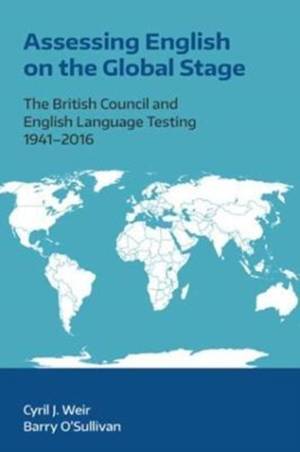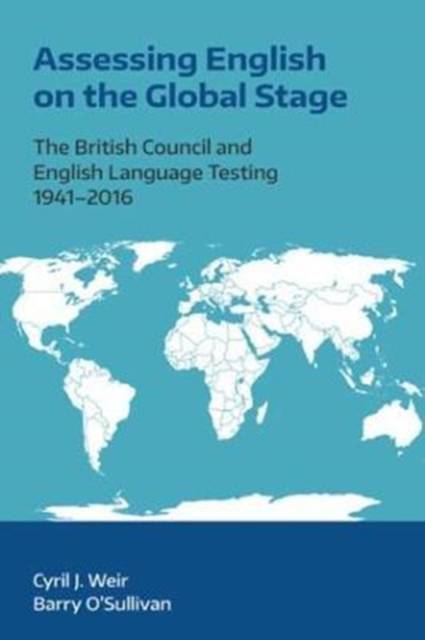
- Retrait gratuit dans votre magasin Club
- 7.000.000 titres dans notre catalogue
- Payer en toute sécurité
- Toujours un magasin près de chez vous
- Retrait gratuit dans votre magasin Club
- 7.000.0000 titres dans notre catalogue
- Payer en toute sécurité
- Toujours un magasin près de chez vous
Assessing English on the Global Stage
The British Council and English Language Testing, 1941-2016
Barry O'Sullivan, Cyril J Weir
Livre relié | Anglais
118,95 €
+ 237 points
Description
This book tells the story of the British Council's seventy-five year involvement in the field of English language testing. The first section of the book explores the role of the British Council in spreading British influence around the world through the export of British English language examinations and British expertise in language testing. Founded in 1934, the organisation formally entered the world of English language testing with the signing of an agreement with the University of Cambridge Local Examination Syndicate (UCLES) in 1941. This agreement, which was to last until 1993, saw the British Council provide substantial English as a Foreign Language (EFL) expertise and technical and financial assistance to help UCLES develop their suite of English language tests. Perhaps the high points of this phase were the British Council inspired Cambridge Diploma of English Studies introduced in the 1940s and the central role played by the British Council in the conceptualisation and development of the highly innovative English Language Testing Service (ELTS) in the 1970s, the precursor to the present day International English Language Testing System (IELTS). British Council support for the development of indigenous national English language tests around the world over the last thirty years further enhanced the promotion of English and the creation of soft power for Britain. In the early 1990s the focus of the British Council changed from test development to delivery of British examinations through its global network. However, by the early years of the 21st century, the organisation was actively considering a return to test development, a strategy that was realised with the founding of the Assessment Research Group in early 2012. This was followed later that year by the introduction of the Aptis English language testing service; the first major test developed in-house for over thirty years. As well as setting the stage for the re-emergence of professional expertise in language testing within the organisation, these initiatives have resulted in a growing strategic influence for the organisation on assessment in English language education. This influence derives from a commitment to test localisation, the development and provision of flexible, accessible and affordable tests and an efficient delivery, marking and reporting system underpinned by an innovative socio-cognitive approach to language testing. This final period can be seen as a clear return by the British Council to using language testing as a tool for enhancing soft power for Britain: a return to the original raison d'etre of the organisation.
Spécifications
Parties prenantes
- Auteur(s) :
- Editeur:
Contenu
- Nombre de pages :
- 400
- Langue:
- Anglais
Caractéristiques
- EAN:
- 9781781794913
- Date de parution :
- 01-09-17
- Format:
- Livre relié
- Format numérique:
- Genaaid
- Dimensions :
- 155 mm x 236 mm
- Poids :
- 748 g

Les avis
Nous publions uniquement les avis qui respectent les conditions requises. Consultez nos conditions pour les avis.






